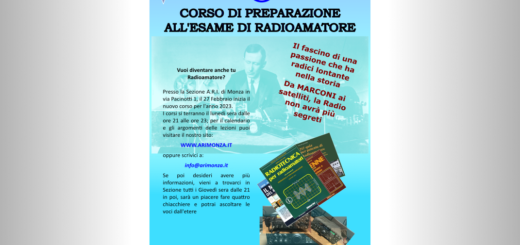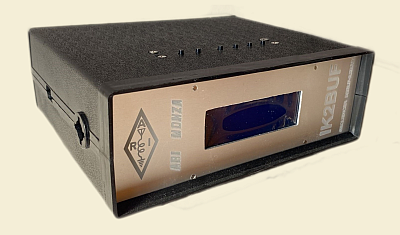contatto in tedesco 27 giugno 2018
As announced earlier, an International Space Station school contact has been planned for Alexander Gerst KF5ONO with two schools in Germany:
– Werner Heisenberg Gymnasium, Leverkusen
– Schickhardt Gymnasium, Herrenberg.
The event is scheduled Wednesday 27 June 2018 at approximately 10:32 UTC (12:32 CEST).
The conversation will be conducted in German.
The contact will be a direct operated by DL0IL and DL0SGH.
The downlink signals will be audible in parts of Europe on 145.800 MHz FM.
Moreover, the event will be web streamed:
Leverkusen:
https://youtu.be/Z-ZaCAnfLpQ
Herrenberg:
https://live.ariss.org/
Participants will ask as many of the following questions as time allows:
1. Yasna (11): How does the human body change in outer space?
2. Victor (11): Does your biorhythm change in space and can you sleep well?
3. Eva (17): Is it true that people cannot belch in space?
4. Tessa (11): Which everyday commodities and habits do you miss most?
5. Max (14): Is it possible to light a candle in the space station, and if so, what does it look like?
6. Roman (16): Do you see the fireworks on New Year’s Eve on the ISS?
7. Lena (16): Do you think that the idea of populating the Moon and Mars in near future is realistic?
8. Lorenz (16): Have you ever lost anything outside the ISS?
9. Max (17): What do you think about the disposal of waste, e. g. electronic scrap, in outer space?
10. Sven (17): What would you ask an astronaut if you were not an astronaut yourself?
11. Charlotte (13): How clean is the air inside the ISS? Do you need to do dusting?
12. David (13): What did your assistant CIMON surprise you the most with?
13. Linda (11): What does it feel like to go on a spacewalk?
14. Lorent (11): What was your most exceptional experience in outer space?
15. Anna (18): How difficult is it to readjust to life on earth after a long stay in space?
16. Maurice (15): Which spaceship would you take to fly to the ISS if you had the choice between the time-tested Soyuz capsule or the new Dragon V2?
17. Max (14): How fast is your internet connection on the ISS?
18. Lukas (15): What would happen in case of an acute medical emergency, e. g. appendicitis?
19. Anne (17): Is it possible to fly directly to the moon from the ISS?
20. Benjamin (9): What is your favorite food on the space station?
About ARISS:
Amateur Radio on the International Space Station (ARISS) is a cooperative venture of international amateur radio societies and the space agencies that support the International Space Station: NASA, Russian Space Agency, ESA, JAXA, and CSA. The US Center for the Advancement of Science in Space (CASIS) and the National Aeronautics and Space Administration (NASA) provide ARISS special support.
ARISS offers an opportunity for students to experience the excitement of Amateur Radio by talking directly with crewmembers on board the International Space Station. Teachers, parents and communities see, first hand, how Amateur Radio and crewmembers on ISS can energize youngsters’ interest in science, technology, and learning.
The primary goal of ARISS is to promote exploration of science, technology, engineering, and mathematics (STEM) topics by organizing scheduled contacts via amateur radio between crew members aboard the ISS and students in classrooms or informal education venues. With the help of experienced amateur radio volunteers, ISS crews speak directly with large audiences in a variety of public forums. Before and during these radio contacts, students, teachers, parents, and communities learn about space, space technologies, and amateur radio. For more information, see www.ariss.org, www.ariss-eu.organd https://www.amsat-on.be/hamtv-summary/.






